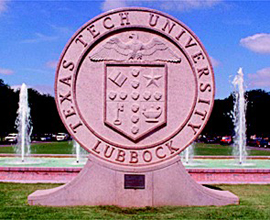
Texas Tech’s innovative program for addicted students is so successful that it’s been granted $700,000 of federal funding to teach other schools to do the same. College students are the fastest-growing sector seeking substance abuse in America today, which has led colleges around the country to establish “recovery communities.” These feature on-campus sober clubhouses, sober recreational activities and recovery courses, the Wall Street Journal reported yesterday. The program at the Lubbock, Texas institution—endowed to the tune of $2.5 million by anonymous donors—serves about 80 students and grants scholarships of $1,000-$6,000 to about 50. Members must take a one-credit course in relapse-prevention and carry out 10 hours of community service each semester. About 80% of the center’s students graduate, and only 6% relapse—some remarkable numbers. The Association for Recovery in Higher Education was formed by 20 schools this summer to support institutions offering such options. Penn State and the University of Michigan, both Big Ten schools, recently inaugurated recovery programs designed to serve not just addicted students but also those who are related to alcoholics and addicts. “So a college student decides to get sober…sounds like the start of a joke, doesn’t it? That’s what I thought 30 years ago when, as a reporter for the University Daily Kansan, I wrote a story about some fellow Jayhawks who were trying to get and stay sober,” says the Journal’s Kevin Helliker. “Thirty years later campus is still a hard place to get sober, and these students who are doing it deserve credit.”
